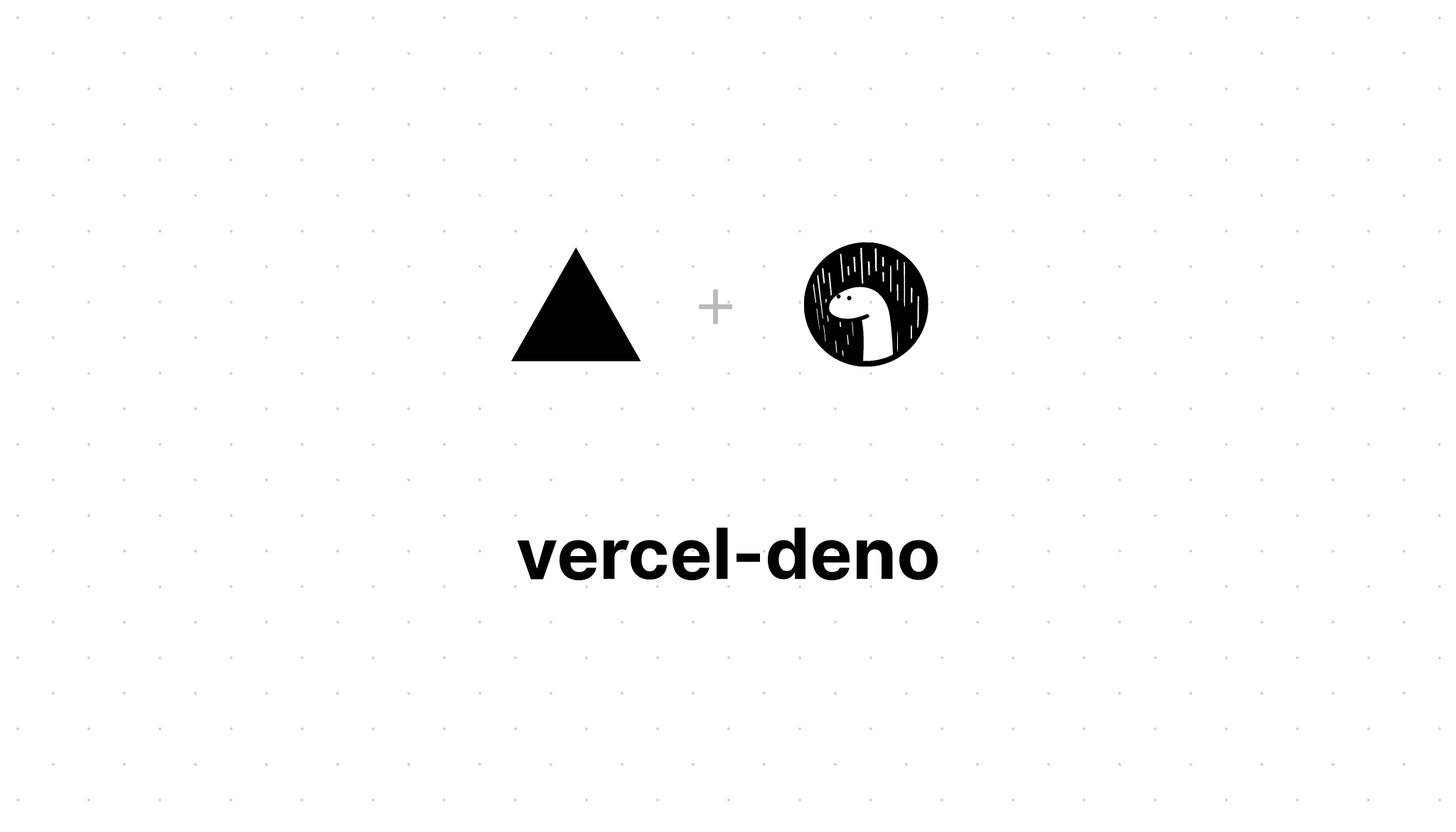The Deno Runtime compiles a TypeScript or JavaScript function into a serverless function powered by Deno, running on Vercel.
Please read the migration guide.
Your serverless function file is expected to export default the HTTP handler
function, and then vercel-deno takes care of invoking that handler function
every time an HTTP request is received.
Note: Check out the
apidirectory to see examples of using popular Deno web frameworks withvercel-deno. Feel free to send a pull request to add additional examples!
Create a file called api/hello.ts with the following contents:
export default (req: Request) => {
return new Response(`Hello, from Deno v${Deno.version.deno}!`);
};Next, define the vercel-deno runtime within the "functions" object in your
vercel.json file:
{
"functions": {
"api/**/*.[jt]s": { "runtime": "vercel-deno@3.1.0" }
}
}Demo: https://vercel-deno.vercel.app/api/hello
To configure which flags are passed to deno run, a shebang needs to be defined in
the entrypoint of the Serverless Function containing the flags that will be used.
For example, to set the window.location object, and use a specific tsconfig file:
#!/usr/bin/env deno run --location http://example.com/path --config other-tsconfig.json
export default async () => new Response(`Location is ${window.location.href}!`);There are also a few flags that can be used that are specific to vercel-deno:
--version- Specify a specific version of Deno to use (can be any valid Deno release tag — e.g.v1.2.3).--include-files- Glob pattern of static files to include within the Serverless Function. Can be specified more than once.
It's also possible to specify environment variables that will apply only to a specific API endpoint by utilizing the shebang. Just place the environment variables before the deno command in the shebang. For example:
#!/usr/bin/env FOO=bar ANOTHER="spaces work too" deno runIn this example, the FOO environment variable will be set to "bar" and ANOTHER will be set to "spaces work too" for only this endpoint.
By default, dynamic imports (using the import() function during runtime) will fail. For most use-cases, this is fine since this feature is only necessary for rare use-cases.
However, when dynamic imports are required for your endpoint, the DENO_DIR environment variable will need to be set to "/tmp". This is required because the file system is read-only, within the Serverless Function runtime environment, except for the "/tmp" dir. Because dynamic imports will require compilation at runtime, the deno cache directory needs to be writable.
The recommended way of enabling this is to add an environment variable to the endpoint's shebang. For example:
#!/usr/bin/env DENO_DIR=/tmp deno run
export default async () => {
const mod = await import('http://example.com/mod.ts');
return new Response(mod.default.doThing());
};The vercel dev command is supported on Windows, macOS, and Linux:
- Vercel CLI v19.1.0 or newer is required.
- Uses the
denobinary installed on the system (does not downloaddeno). - Specifying a specific version of Deno via
--versionflag is ignored.
